
HU Press Article | UpGradeSME Move forward together
UpGradeSME Additional Activities | SME export and COVID-19
New challenges | Post-COVID effects on regional economy, policy measures and the internationalization challenge of SMEs
UpGradeSME was initially a 5-year learning process with the close cooperation of 8 actors representing 6 European regions of Hungary, Romania, the Netherlands, Germany, Portugal and Spain aiming at improving SME internationalization policies through interregional learning processes. These regional players represented relevant knowledge, living linkages with SMEs and the regional or national policy level.
In February 2016 the partnership started its cooperation by involving local stakeholders, SMEs, decision makers relevant in the issue of SME export challenges and since then worked actively by following the previously set work plan to reach real change in the analysed policy instruments tackling SME internationalization.
Despite and because of regional/ national economic and cultural differences the partners could experience a deep learning process. The partners received a mirror or the own national and regional policy background supporting SME internationalization.
They participated intensive learning processes by hosting international thematic workshops in the involved countries, by organizing international staff exchange programs to partners institutes, by interacting with local SMEs, policy makers, regional bodies and the exchange of know-how.
By learning local case studies and by exchanging experience UpGradeSME partners could contribute to the improvement of the analysed regional and national internationalization policy instruments. As a result of the interregional learning process proposals were elaborated and documented in Action Plans, one in each region focusing on the improvement of the policy instrument.
These Action plans are open to the public and can be reached in the UpGradeSME library. In the library section further result are published for the wider audience.
The partners reached the set goals in 2021. As the COVID-19 crisis changed not only the everyday life but also the economic perspectives the UpGradeSME partnership decided to focus on the current situation and received the possibility from the INTERREG EUROPE program to continue the common work, the exchange of knowledge by focusing on the effects of the pandemic on export activities, on the reactions of the economy and the policy level.
Thus, the partnership currently is working on the analysing the impact of COVID-19 with the participation of 120 SMEs and the relevant policy level from the respective regions.
€1,558,771.00
SME competitiveness
8 partners cooperate in the deep restructuring of 6 involved policy instruments in the topic of SME internationalization .
SME are deeply involved in all countries. This brings the needs of beneficiaries and the offers of the decision making level closer – a real dialogue begins .
During the 5 years exchange of experience workshops, staff exchanges, study visits, peer reviews and the direct interaction with different policy levels starting from the SMEs through intermediary organisations to the Managing Authorities were realized .
6 Action plans were elaborated which provided the methodological upgrade of the selected policy instruments.
EU level policy recommendation was provided on SME internationalization topic .
The Hungarian Government -following the objectives of the European Union- aims to improve the international competitiveness of the SMEs, wants to increase their number having foreign trade relationships.
In Hungary the call EDIOP 1.3.1 focuses on the support of the internationalization of the micro, small and medium sized enterprises, in the framework of the Economy Development and Innovation Operative Program (EDIOP) 2014-20. EDIOP 1.3.1., after having recognized the shortage of the financial, human and information resources of the Hungarian SMEs, is willing to support the appearance of companies on new markets by ensuring effective foreign marketing activities, participation on international exhibitions, B2B events, and fairs. It also targets to ensure the required knowledge for participating successfully the market competition. The call also supports consultations, elaboration of market researches and studies, supporting the export capability of the companies.
Due to recent conditions of the above mentioned call SMEs can apply with own project proposals and receive a support with an intensity of maximum 50%, dependent on the company size and the location. The main beneficiaries of the call are SMEs with value and export growth potential. Through their development they can also get connected to local, national but most preferably to international networks, meanwhile also intensifying their participation. The duration of a single project is maximum 24 months.
In Romania, for 2014-2020 the internationalization of SMEs is addressed through 2 policy instruments:
The 1st one is addressed by the Competitiveness Operational Programme 2014–2020 and envisages soft measures by providing support to transnational cooperation between SMEs and R&D institutions from abroad, through action 1.1.3 Create synergies with the HORIZON 2020 RDI actions and with others RDI programs. Thus, through COP, SMEs will be assisted to write and successfully implement projects financed by Horizon 2020 and others RDI programs financed by European Commission.
The 2nd policy instrument is addressed by the Regional Operational Programme 2014–2020 that intends to increase the competitiveness of SMEs and envisages measures to support SMEs older than 1 year to grow in the value chain, gain access to finance, assistance and new markets. The main challenges faced by SMEs are related to the rapid adaptation to the market, continous improvement of delivered products and services.
Thus, ROP 2014–2020 will support companies with potential to develop/maintain its position on the market by supporting their business operations. ROP proposes interventions to support the access to international markets.
This last policy instrument will be addressed through this project, since South Muntenia RDA is acting as Intermediate Body for Regional Operational Programme 2014–2020 and can improve this policy.
The specific policy instrument called “Groen Werkt!”by the Municipality of Leeuwarden with support of the Province of Fryslân. Especially the internationalisation and Leeuwarden European Capital of Culture 2018 paragraphs will be addressed. “We want to help our SMEs to export goods and services, to tie knowledge and to learn together with other governments.” The current internationalisation policy instruments are primarily focused on the Watercampus and water (technology) sector specifically as can be seen in the policy instrument “Groen Werkt!”. This is functioning well, valuable lessons have been learned and international contacts, relations and networks are set up. Other sectors, clusters and individual SMEs are also in need of internationalisation support. Currently they are served with a rather fragmented entrepreneurship support approach. This needs a more strategic, structural, cross-sectoral , coordinated and internationally oriented effort. The „Kanselarij” and „Blokhuispoort” entrepreneurship centers and the concentration of SMEs connected to them are vital partners in this process. “Groen Werkt! seeks affiliation and wants to contribute to KH2018. Bottom-up innovation and international cooperation are principles of Groen Werkt!” We want to create critical mass and create international market opportunities for our SMEs. In the process we will take into account the diversity of these SMEs and benefiting from cross sectoral collaboration.
The Land of Baden-Württemberg, more precisely the Ministry of Finance and Economics Baden-Württemberg, has created the function of the Commissioner for Europe under Public Mandate in order to improve and support the internationalization of the SMEs. The Commissioner for Europe is in permanent contact with the Ministry through frequent meetings and services provided to the Ministry of Finance and Economics of Baden-Württemberg who finances directly this function. The Commissioner for Europe offers many services for the SMEs of Baden-Württemberg especially dedicated to support the internationalization of SME in the region. Among the most important services are consultancy & assistance regarding European Funding and Research Programmes, Technology Cooperation, Participation at and organization of Brokerage Events, Company Missions and Information Days as well as Trainings. These services have to be improved given the structural change towards a digitalised economy for a faster know-how transfer and market uptake of innovation at the European level. The operational unit of the Commissioner for Europe of the Ministry of Finance and Economics Baden-Württemberg is the Steinbeis-Europa-Zentrum (SEZ).
Despite the northern region, in Portugal, have an important export tradition and be, really, the best Portuguese region on export goods, in fact the vast majority of North companies, that are obviously SMEs, has no sales activity in foreign markets. Only 13,2% of the northern SMEs have export activity, so the SME’s internationalisation has a greater possibility of increasing. The aim is to support actions that promote extroversion of the regional economy by increasing the share of exports in turnover of companies, by promoting entrepreneurial initiatives, individual and collective, to approach to international markets and empowering companies to a growing participation in European networks.
The policy instrument corresponds to priority 3.4 of the ROP which aims at increasing the capacity of SMEs to grow in regional, national and international markets, and in innovation processes. Under this priority, main objectives will be to promote the growth and consolidation of the SMEs by improving access to finance, technology and knowledge-intensive support services, and to promote innovation and cooperation for innovation among the SMEs. Measures that will be implemented under this priority will help SMEs to improve their productive capacity and to access advanced services to increase their productivity and competitiveness, as well as their innovation capacity. The rationale of the policy instrument is that the improvement of competitiveness will in turn improve their position in international markets. It pays particular attention to help companies to access advanced knowledge-based services. Fomento de San Sebastian (FSS) will contribute to the improvement of the policy design and the appropriate implementation by ensuring the connection between local SMEs and the knowledge and innovation providers, through the local innovation network. Very often, local SMEs find it difficult to know about and to access technology centres innovation offer, and that leads to a poor implementation of the support measures.

UpGradeSME Additional Activities | SME export and COVID-19
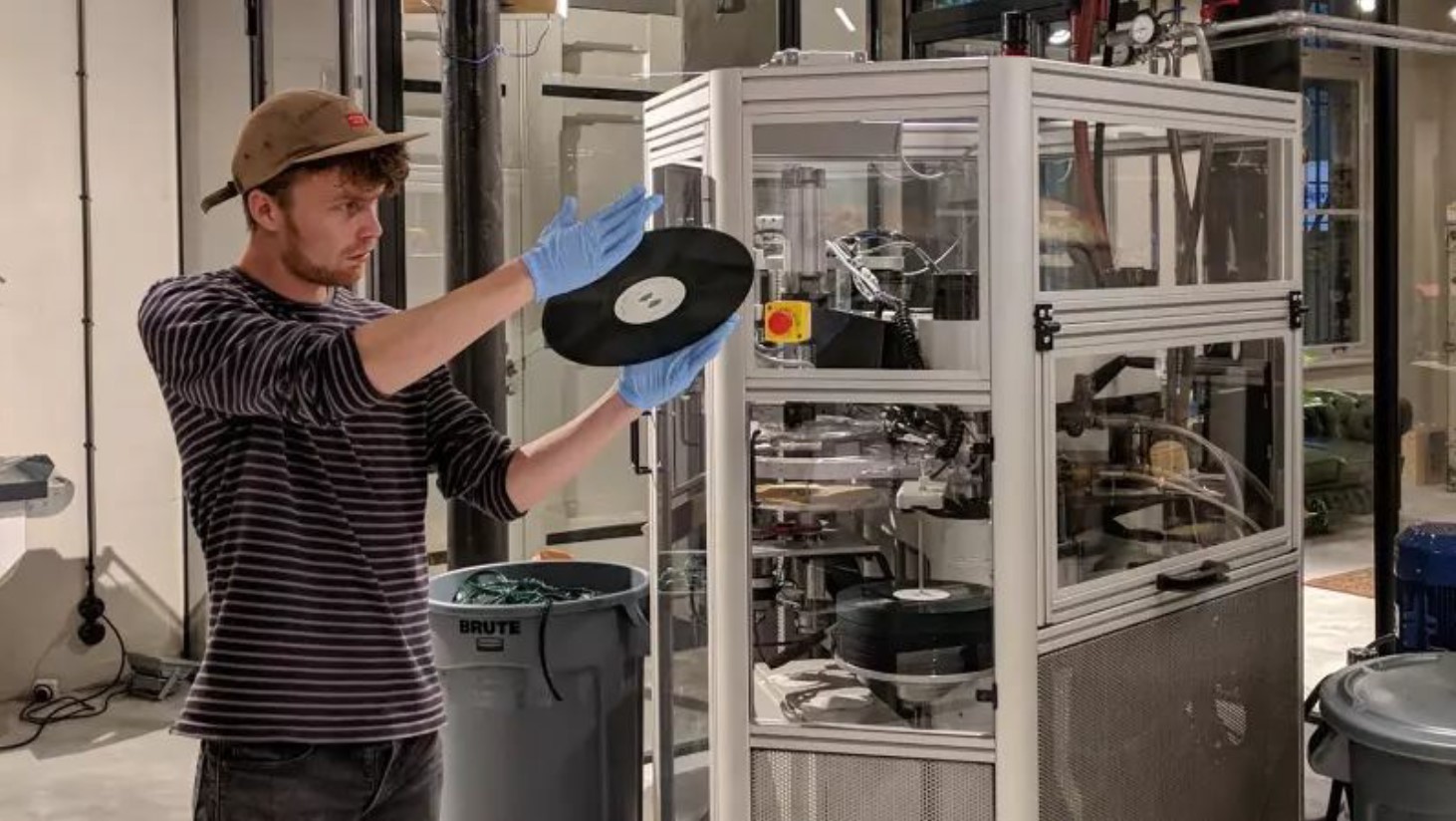
Instruments that enhance exports – during the Covid-19 pandemic extension
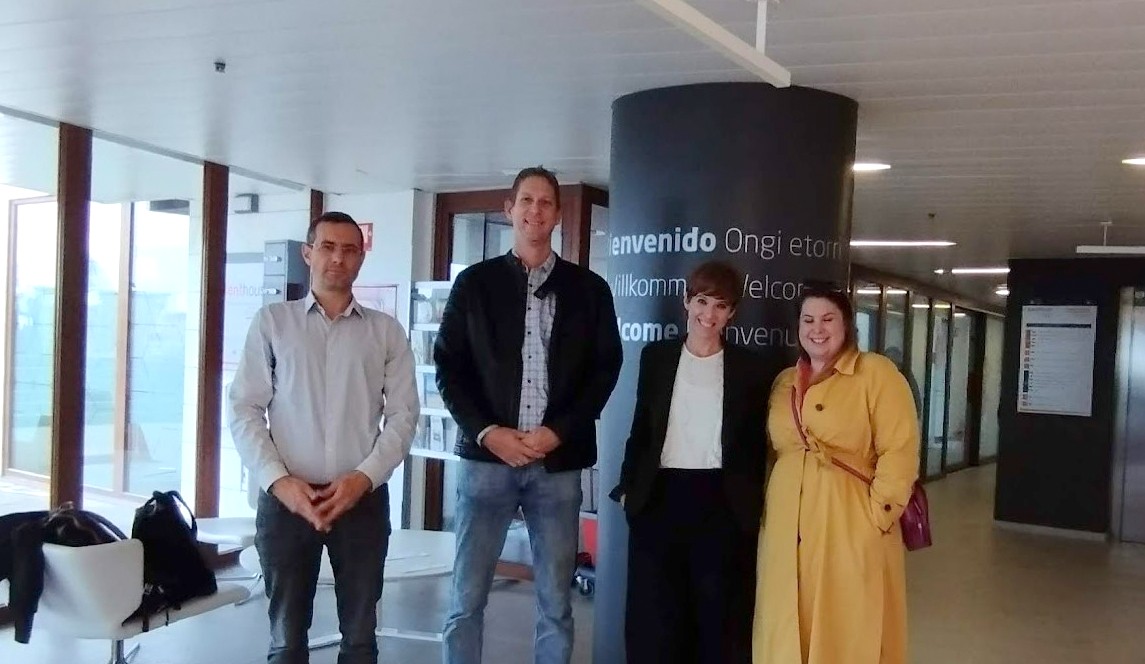
Pannon Business Network and Prime Minister's Office in San Sebastian

Guimarães Film Festival | A case study for supporting small and medium sized enterprises become visible
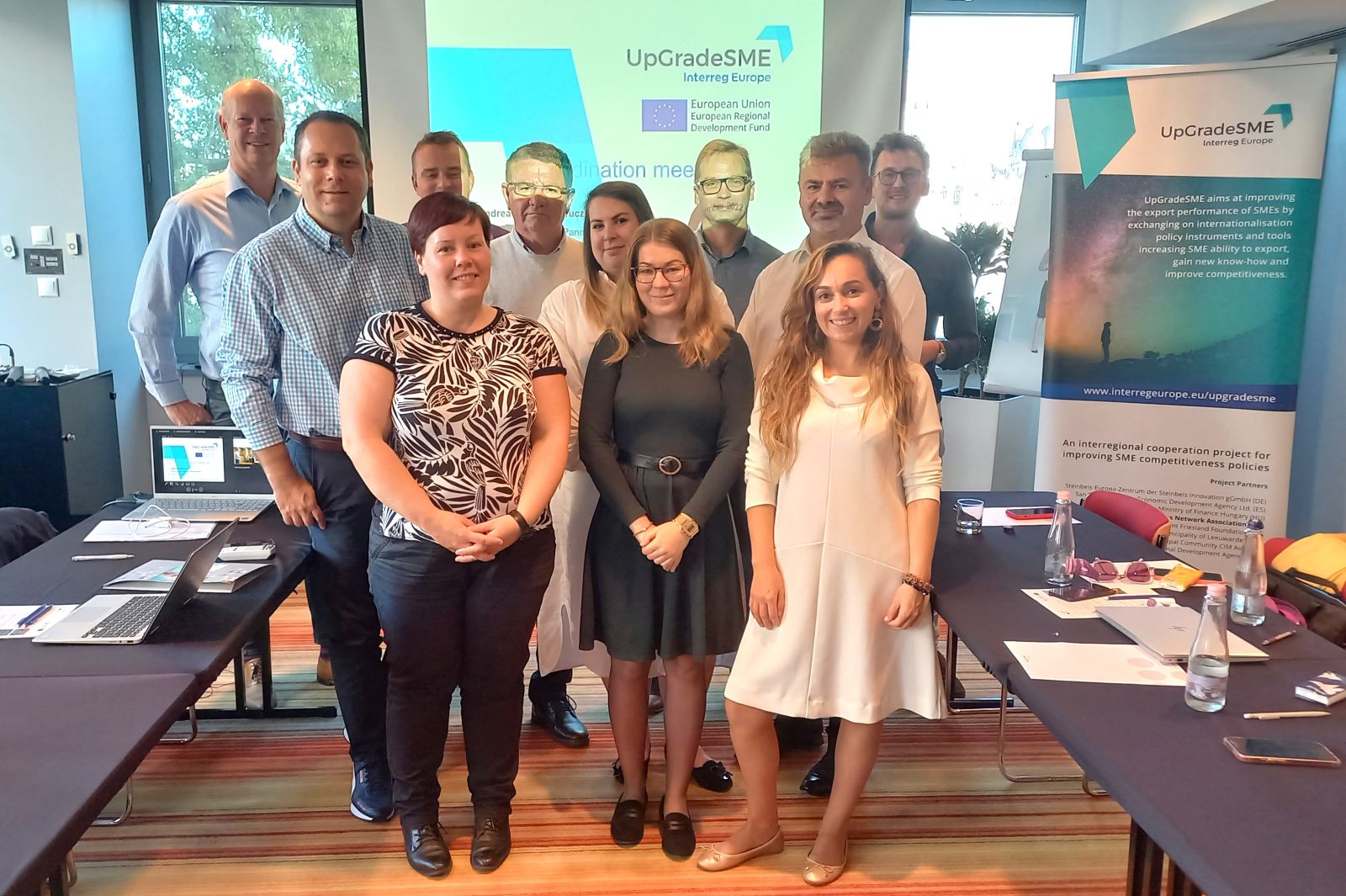
Press article composed by Steinbeis Europa Zentrum
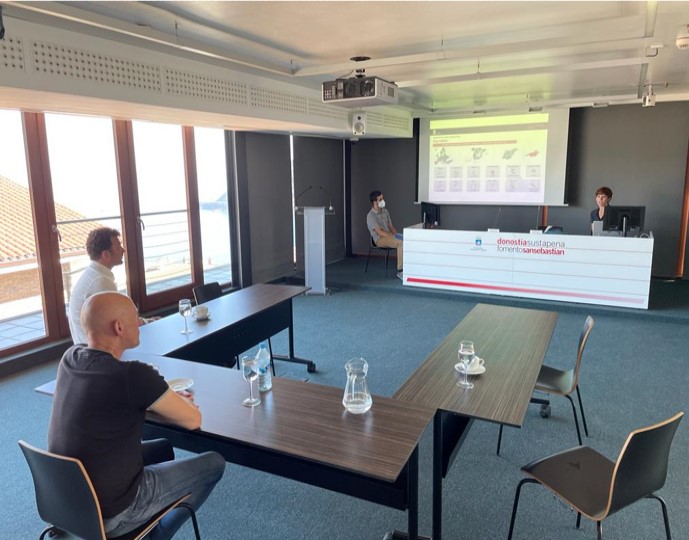
Summary of the visitors form the Netherlands

UpGradeSME partners finished comprehensive survey on COVID-19 impact effecting SME internationalization policies and company operation.
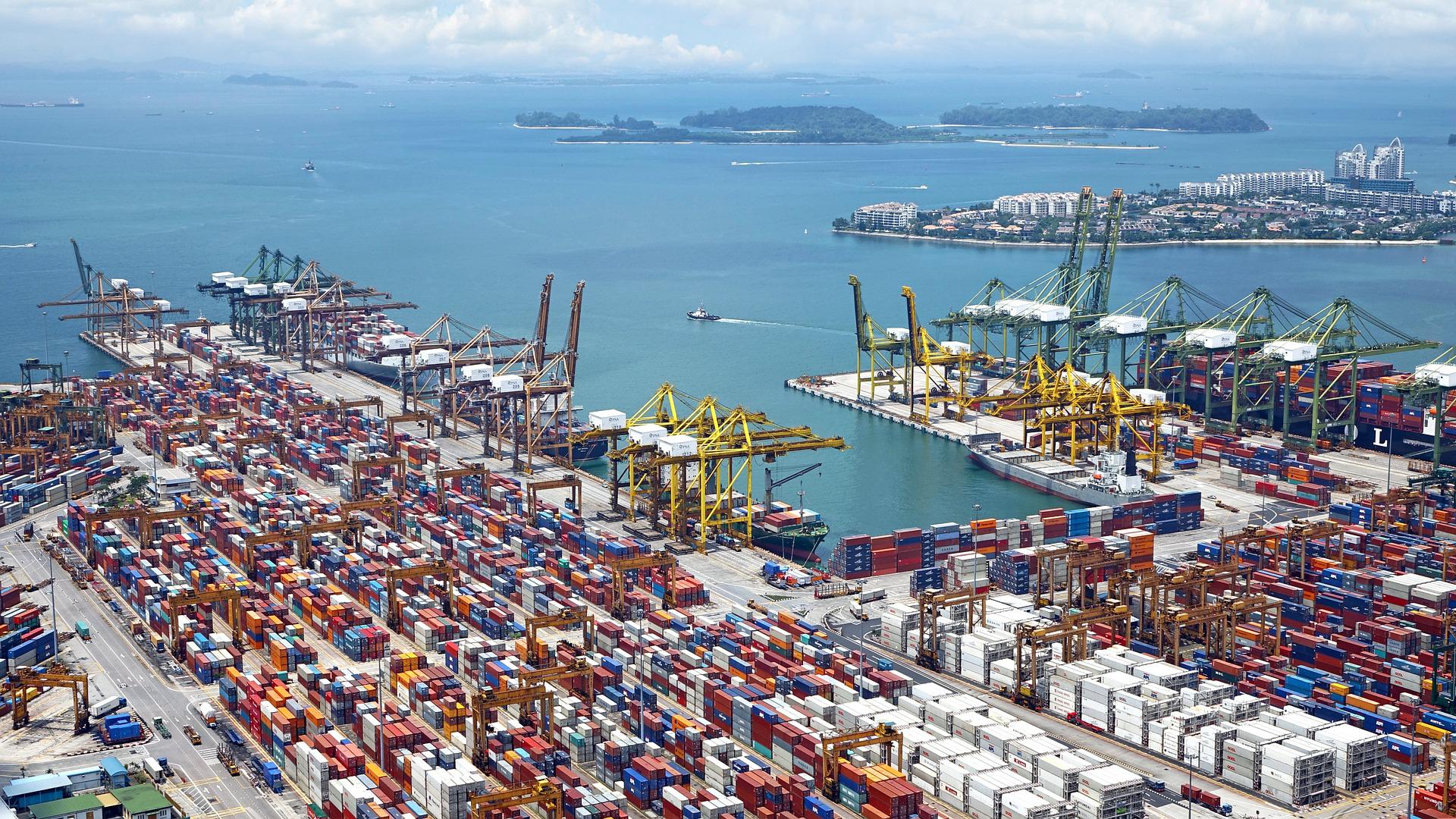
Policy Learning Platform article about SME internationalisation during COVID-1+ pandemic

International online event was organized by UpGradeSME with the involvement of experts from Europe with special attention to SME internationalist and COVID-19

Meeting with local stakeholders in South Muntenia